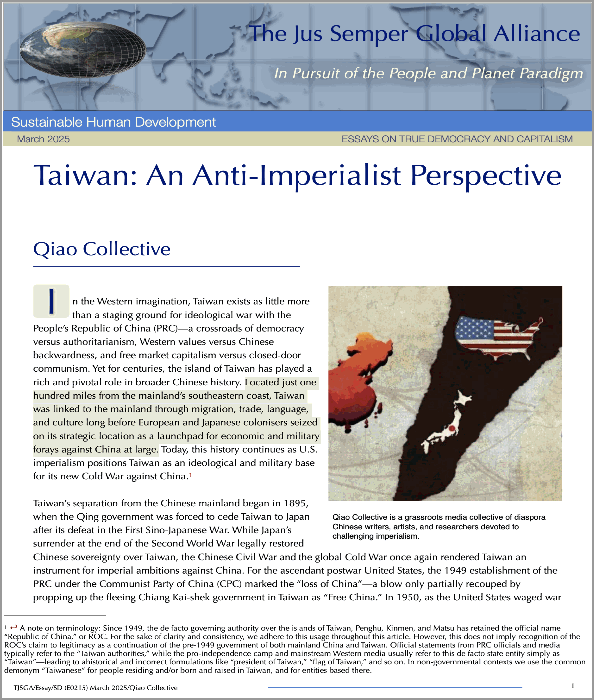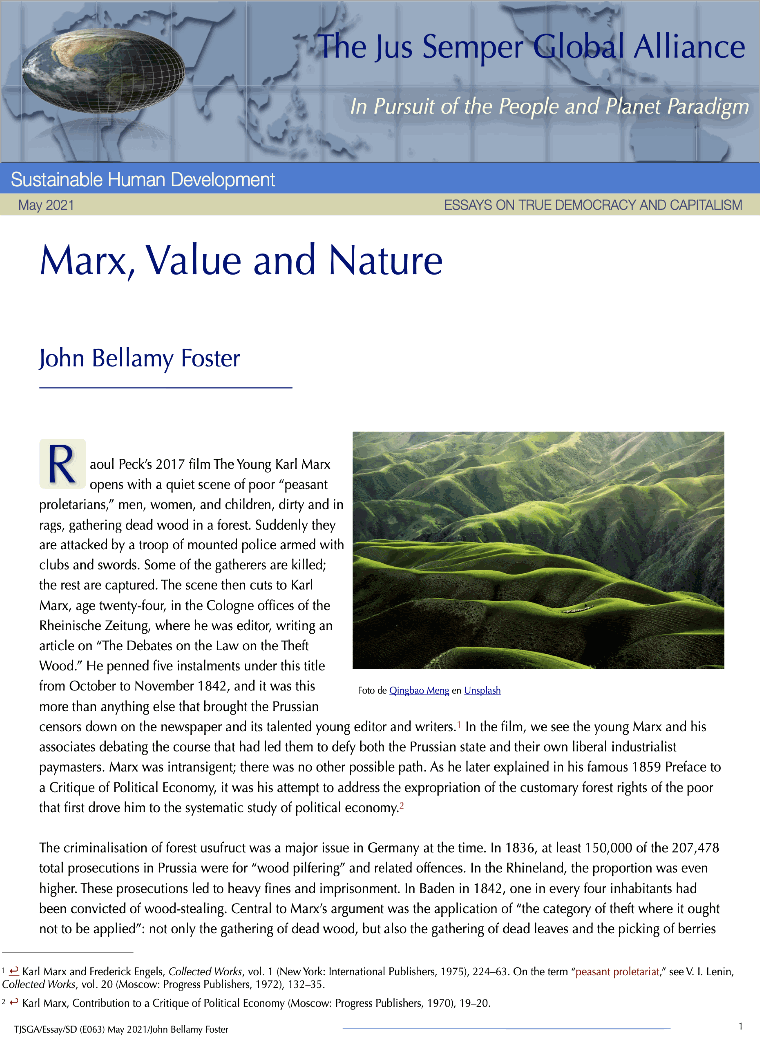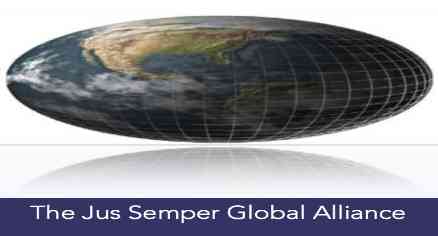John Bellamy Foster The criminalisation of forest usufruct was a major issue in Germany at the time. Questions regarding the expropriation of land/nature and of human beings never ceased to occupy Marx in his subsequent works, appearing in his Economic and Philosophical Manuscripts and in his two great discussions of “so-called primitive accumulation” in the Grundrisse and Capital. As Marx explained in The Poverty of Philosophy and in the Grundrisse, all human society rests on free appropriation from nature, which is the material basis of labour and production. This is another way of saying that all society depends on property. There can be no human existencewithout the appropriation of nature, without production, and without property in some form. In the classical Marxian perspective, it is precisely because human history has created a mode of production (capitalism) that alienates the metabolic relations between human beings and nature, thereby creating a metabolic rift and rupturing the conditions of ecological reproduction, that we can hope to restore that essential metabolism—through a revolutionary overturning of the capitalist integument and the creation of a new, coevolutionary material reality. This is Marx’s core ecological message. For a full read of this brief, click here or on the picture to download the pdf file.
|

- © The Jus Semper Global Alliance
| Home |  | Resources |  | Economic Data |  | Marx, Value and Nature |


